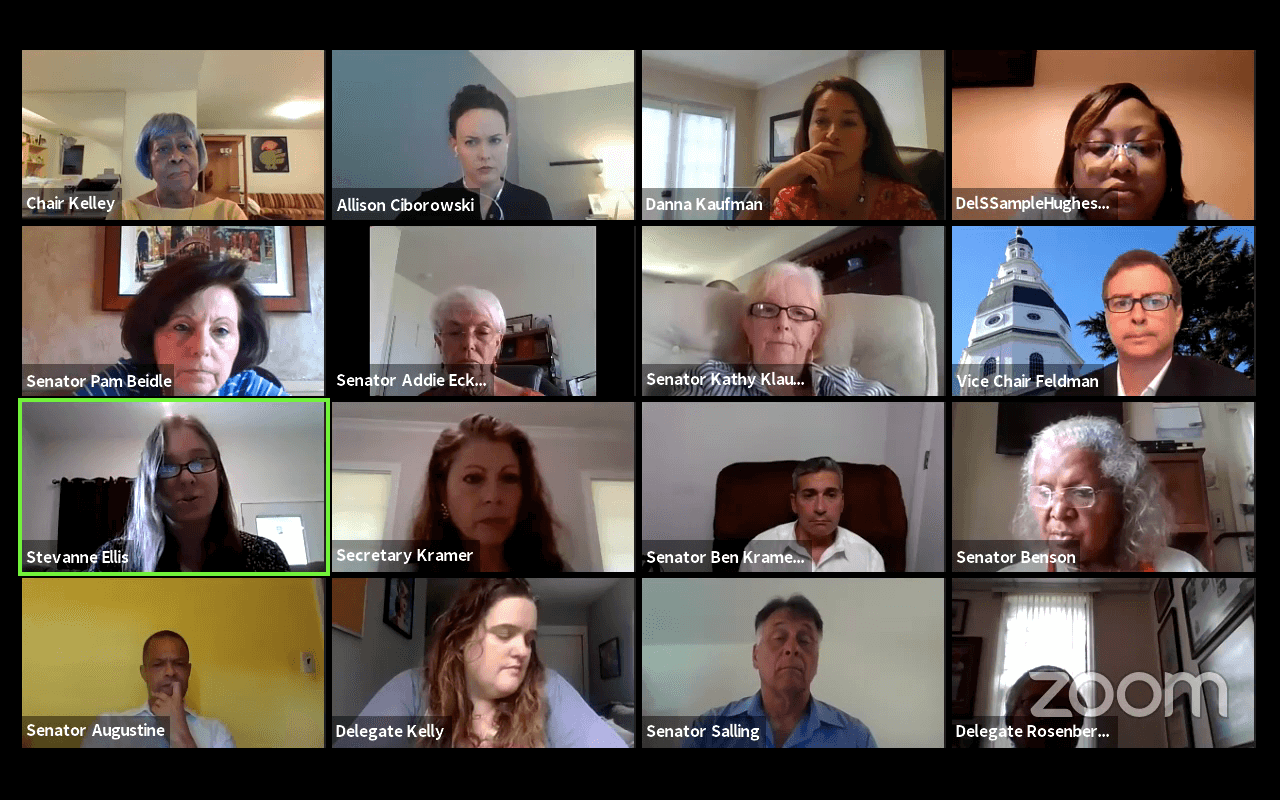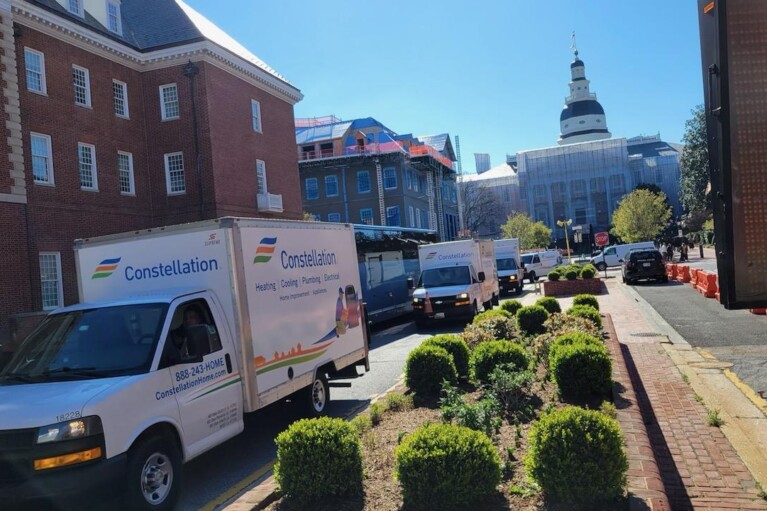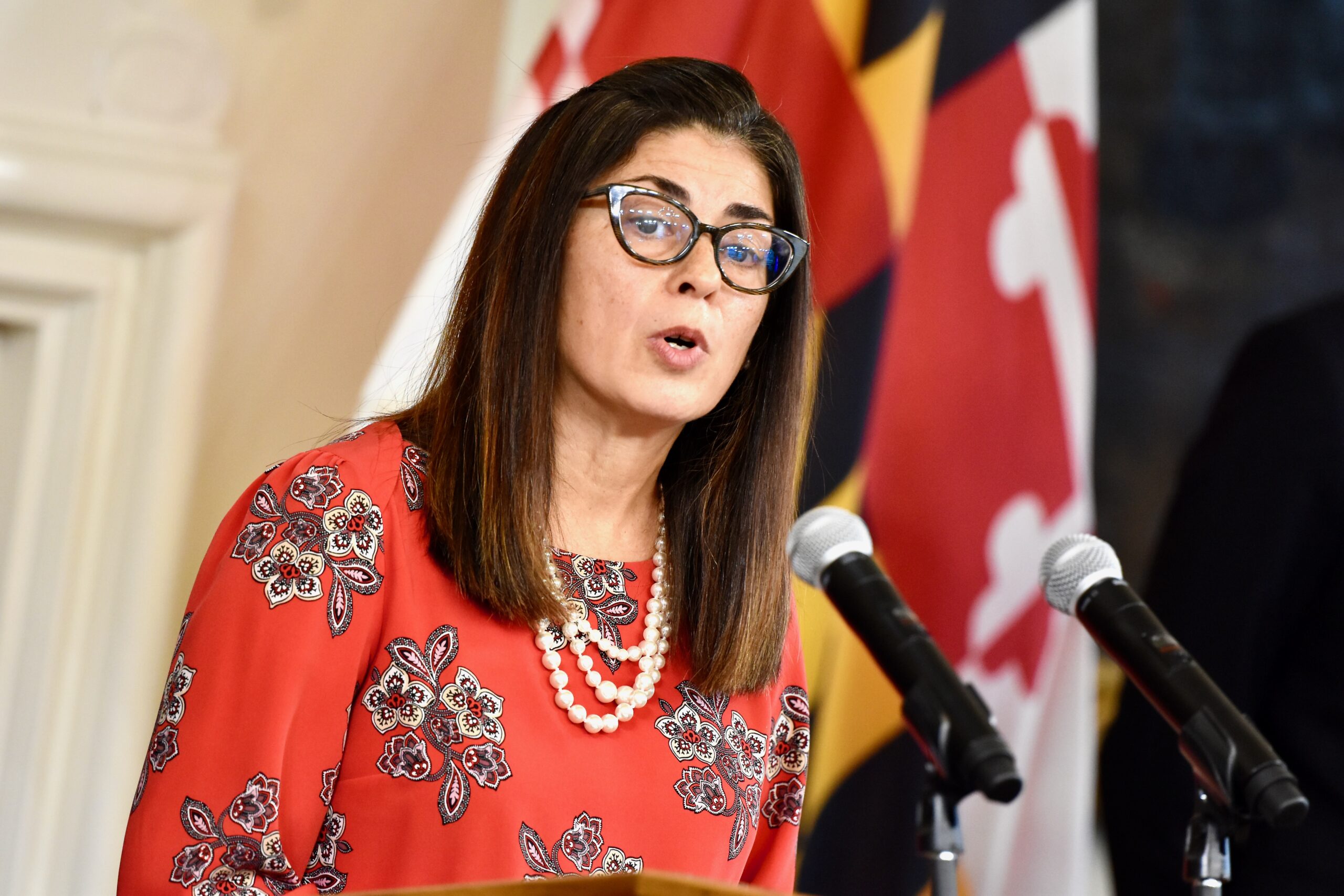Experts: Retirement Communities, Assisted Living Facilities Get Less Scrutiny Than Nursing Homes During Pandemic

Maryland’s assisted living facilities and retirement communities are struggling under the strain of COVID-19 as much as nursing homes, but they get much less attention, members of the General Assembly were told on Thursday.
Adding to the challenge is that the state government’s network of ombudsmen, who would normally be checking in on seniors and disabled persons in a time of crisis, can’t do in-person visits for fear that they might unintentionally infect residents or staff.
Top officials with the Maryland Department of Aging told lawmakers that they are checking in by phone, using automated “call checks,” delivering meals from local restaurants and taking other steps to verify that residents are being cared for appropriately.
But Sen. Delores G. Kelley (D-Baltimore County) said too many assisted living and retirement communities fly under the radar.
“We’re holding this briefing today largely because both the state and the press have failed to indicate anything separately during this pandemic regarding the existence of — and the state of health of — elderly Marylanders [and] disabled Marylanders who live in assisted living facilities,” said Kelley, chairwoman of the Senate Finance Committee.
“I guess they’ve been lumped in with nursing homes, but that’s a very different animal,” she added.
Despite efforts to monitor the state’s care facilities, the coronavirus pandemic has created unprecedented challenges, officials said.
Social isolation, stress, frustration and a lack of communication with friends and family are common problems, said Stevanne Ellis, the Department of Aging’s Long-Term Care Ombudsman.
“A lot of the facilities have done a good job combating these issues, but I really do feel that there’s a lot more than can be done across the state,” she told lawmakers. “This has been life-altering for many of us.”
Facilities are struggling to cope with personal protective equipment costs for which they had not budgeted. Staffing is another challenge, as workers move on, take time off or become ill.
“This is a field where we were already seeing workforce shortages,” said Allison Ciborowski, CEO of LeadingAge of Maryland, a nonprofit association. “So it’s not a surprise to us that this pandemic has really made things even more challenging.”
Temporary staffing costs as much as three times what it was before the pandemic, Ciborowski said. “So it’s just an incredible financial burden for providers.”
Maryland has 1,558 licensed assisted living communities, with 23,687 available beds. It’s believed there are many unlicensed facilities as well.
Danna L. Kauffman, a LifeSpan attorney and lobbyist, said she hopes out-of-work Marylanders will consider changing careers.
“Unfortunately, with the state’s rate of unemployment, there are going to be jobs that just don’t come back,” said Kauffman, a public policy consultant. “We’ve been working with the Maryland Higher Education Commission and the Department of Labor to figure out how we can pivot individuals into training programs.”
Assisted living and retirement communities are not required to test their workers for COVID-19 but many have done so voluntarily, swallowing the cost in the process. These facilities “have really not received any specific federal or state funding” to offset their increased costs, Ciborowski said.
The Department of Aging has more than 40 ombudsmen and more than 100 volunteers who perform the same checks on residents.
Hogan official attacks Sun report
Lawmakers expressed concern about a Baltimore Sun investigation which found that nursing home infection and death rates on the state’s COVID-19 dashboard are not cumulative, as are the other data on the site.
According to the paper, if a nursing home goes 14 days without a new case, its prior cases are deleted from the state’s running total.
While the government’s website shows that 1,359 people have died as a result of “active” coronavirus outbreaks at such facilities, the Sun reviewed six weeks of state data and found that closer to 1,750 resident and staff deaths have been reported since the pandemic reached the state.
Department of Health officials were invited to participate in the legislative briefing but declined to do so, Kelley said.
Maryland Secretary of Aging Rona Kramer offered a robust defense of the state’s dashboard, noting that language at the bottom of the screen informs the public that only “active” cases are being tracked.
“It doesn’t mean that the historical data is not available. It is. It’s just not on this particular dashboard,” she said, during a lengthy attack on the Sun. “The purpose of this particular dashboard is to give a snapshot in time, current.”
“I can’t imagine how this reporter used this headline if the reporter read what is right there,” she added. “It’s very inappropriate.”
In an interview, Sen. Brian J. Feldman (D-Montgomery) called the state’s data misleading.
“The dashboard needs to be looked at as objective, non-political data that everybody is looking at and relying on to make public policy decisions,” said Feldman, vice-chairman of the committee.
“The moment that there is a sense that the data may have been manipulated in any way, shape or form, the numbers and the dashboard itself loses credibility.”
Sen. Pamela G. Beidle (D-Anne Arundel) said her uncle contracted COVID-19 while undergoing rehab in an assisted living facility.
She praised that facility for its communication with families, but expressed concern about the state’s data, which she said went several days without an update, then showed a drop of 294 cases between June 6 and Thursday.
State officials told the newspaper that the numbers on Maryland’s COVID-19 site represent a running total.
“I’m just very concerned that we’re not getting any realistic numbers at all with what’s happening in our nursing homes and assisted living,” said Beidle.




 Creative Commons Attribution
Creative Commons Attribution